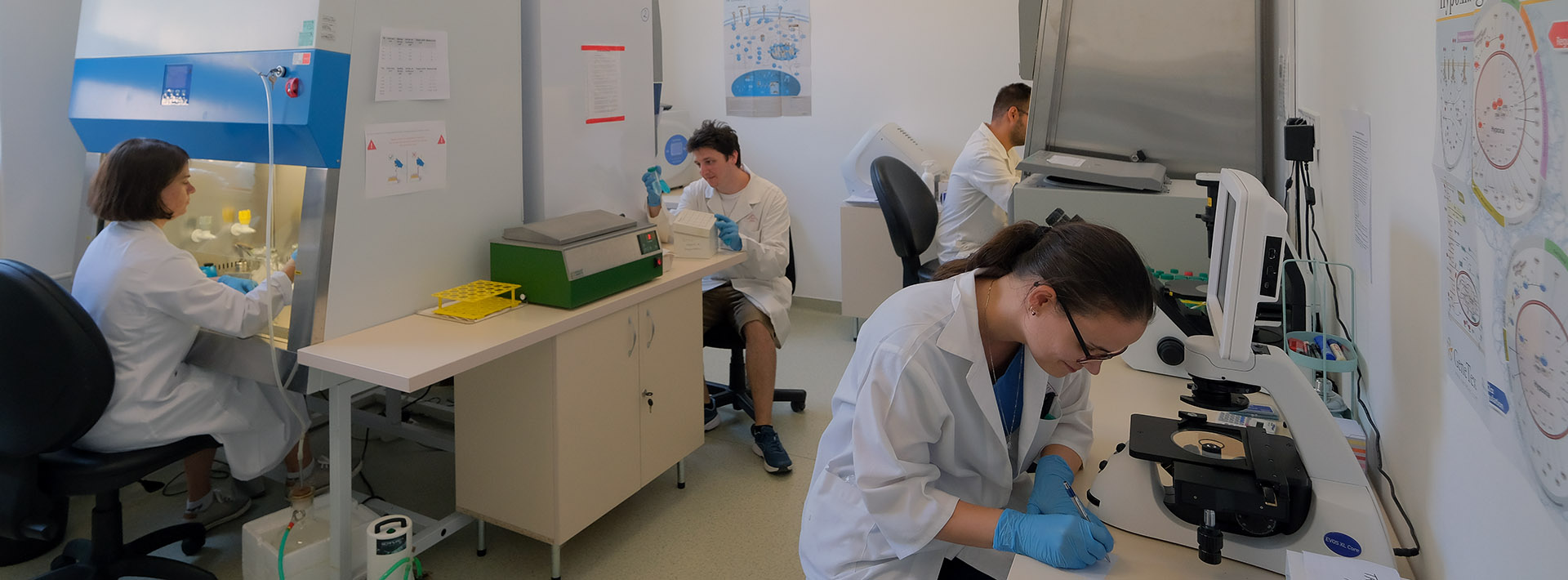Adatok
A Tantárgybejelentőben megadott hivatalos adatok az alábbi tanévre: 2024-2025
Tantárgyfelelős
-
Debreceni Balázs
associate professor,
Department of Biochemistry and Medical Chemistry
Óraszámok/félév
előadás: 42 óra
gyakorlat: 0 óra
szeminárium: 14 óra
összesen: 56 óra
Tárgyadatok
- Kód: OSA-BKZ-T
- 4 kredit
- Dentistry
- Basic modul
- autumn
OSA-OKF-T finished , OSA-BEF-T finished
Kurzus létszámkorlát
min. 5 fő – max. 200 fő
Tematika
The subject gives an overview of the molecular processes occurring in living organisms from two major aspects. On the one hand, following the subject -Introduction to Biochemistry, it describes the metabolism of the four major types of biomolecules (carbohydrates, lipids, amino ac ids/proteins and nucleotides /nucleic acids) along with the indirect enzymatic regulation of
these processes. On the other hand, built on the subject -Molecular Cell Biology, accounts for the molecular processes responsible for the transmission of information within the living organisms from molecular biological (DNA-RNA-protein-metabolite) as well as hormonal point of view. The subject lies down the foundations of the subjects Pharmacology and Clinical Chemistry.
Előadások
- 42. Fat soluble vitamins - Jávor-Hocsák Enikő
- 41. Water soluble vitamins - Jávor-Hocsák Enikő
- 40. Signal transduction III. - Gallyas Ferenc
- 38. Signal transduction I. - Gallyas Ferenc
- 39. Signal transduction II. - Gallyas Ferenc
- 37. Hormones 2 - Bognár Zita
- 35. Protein targeting, degradation - Berente Zoltán
- 36. Hormones 1 - Bognár Zita
- 34. Folding, PTM - Tapodi Antal
- 32. Small RNAs - Nagyné Kiss Gyöngyi
- 33. Retroviruses - Tapodi Antal
- 31. Regulation of gene expression - Nagyné Kiss Gyöngyi
- 30. Protein -DNA interactions - Nagyné Kiss Gyöngyi
- 28. Synthesis of purin and pyrimidin nucleotides - Bognár Zita
- 29. Degradation of purin and pyrimidin nucleotides - Bognár Zita
- 27. Biologically active compounds - Kovács Krisztina (Biokémia)
- 26. Enzymopathies in amino acid metabolism - Kovács Krisztina (Biokémia)
- 25. Synthesis of non-essential amino acids - Kovács Krisztina (Biokémia)
- 24. Amino acid metabolism: the fate of carbon skeleton - Kovács Krisztina (Biokémia)
- 23. Urea cycle - Tapodi Antal
- 22. Amino acid metabolism: the fate of amino group - Tapodi Antal
- 21. Regulation of lipid metabolism - Tapodi Antal
- 19. Synthesis of complex lipids - Balogi Zsolt
- 20. Cholesterol and lipoproteins - Balogi Zsolt
- 18. Fatty acid synthesis - Gallyas Ferenc
- 16. Regulation of glycogen metabolism - Gallyas Ferenc
- 17. Regulation of carbohydrate metabolism - Gallyas Ferenc
- 15. Glycogen synthesis and degradation - Berente Zoltán
- 14. Gluconeogenesis - Takátsy Anikó
- 13. Mitochondrial transport processes, shuttles - Takátsy Anikó
- 12. ATP synthesis - Takátsy Anikó
- 11. Respiratory chain and its inhibition - Takátsy Anikó
- 10. Ketonbodies - Jávor-Hocsák Enikő
- 8. Regulation of TCA cycle - Veres Balázs
- 9. Fatty acid oxidation - Jávor-Hocsák Enikő
- 7. Reactions of TCA cycle (PDC included) - Veres Balázs
- 6. Pentose phosphate pathway - Veres Balázs
- 5. Metabolic pathways linked to glycolysis - Veres Balázs
- 4. Regulation of glycolysis - Veres Balázs
- 3. Reactions of glycolysis - Veres Balázs
- 1.
Introduction
- Bognár Zita - 2. Biochemical processes (overview) - Veres Balázs
Gyakorlatok
Szemináriumok
- 13. Consultation
- 14. consultation
- 12. Student demonstrations
- 11. Student demonstrations
- 10. Purine and pyrimidine nucleotides
- 9. Purine and pyrimidine nucleotides
- 7. Amino acid metabolism
- 8. Amino acid metabolism
- 6. ATP calculation
- 5. Respiratory chain
- 3. Lipids - metabolism
- 4. Lipids - metabolism
- 2. Carbohydrate metabolism
- 1. Carbohydrate metabolism
A tananyag elsajátításához szükséges segédanyagok
Kötelező irodalom
Nelson, Cox: Lehninger Principles of Biochemistry, 6th edition, W.H. Freeman, 2013
Saját oktatási anyag
The elective course "Chemistry from Exam to Biochemistry" will help you to improve your knowledge of the subject.
www.aok.pte.hu
Jegyzet
www.aok.pte.hu
Ajánlott irodalom
Berg, Tymoczko, Stryer: Biochemistry, 7th edition, W.H. Freeman, 2012.
Devlin: Textbook of Biochemistry with Clinical Correlations 7th edition, Wiley, 2010.
A félév elfogadásának feltételei
non
Félévközi ellenőrzések
It is obligatory to visit the lectures. There are seminars at every EVEN NUMBERED EDUCATIONAL weeks (2-4-6-8-10-12-14). There are short tests from week 4 till 14. The lab is beginning with a short test (time is 6 minutes; 6 occasions; max. 6 exampoints). These points cannot be added to the minimum questions, but they will be added to the final score. Requirement for acceptance is writing 5 test out of 6 possibility.
There is no possibilities to write a short test if delaying is over 5 minutes. No more than 10 minutes delay is accepted, over of it, it is an absence. No more than 1 absence is allowed from the 7 seminars(15%).
Távolmaradás pótlásának lehetőségei
Non
Vizsgakérdések
The questions of the exams are based on the lectures and exercises of the previous semesters (Chemistry for Dentistry Students, Introduction to Biochemistry for Dentistry Students) and the lectures and seminars of the current semester (Biochemistry for Dentistry Students). The exam starts with 7 minimum questions. Minimum questions: max. 28 points/min. 20 points are required. Exam questions: additional 92 points; Total: 120 points + Extra points: 0-6
0-70 points: 1 (fail)
71-80 points: 2 (satisfactory)
81-90 points: 3 (average)
91-100 points: 4 (good)
101-120 points: 5 (excellent)
The exam conditions, and a sampla test are on the website of the department. (http://aok.pte.hu/en/egyseg/oktatasianyagok/2024)
Vizsgáztatók
- Bognár Zita
- Debreceni Balázs
Gyakorlatok, szemináriumok oktatói
- Bognár Zita
- Debreceni Balázs
